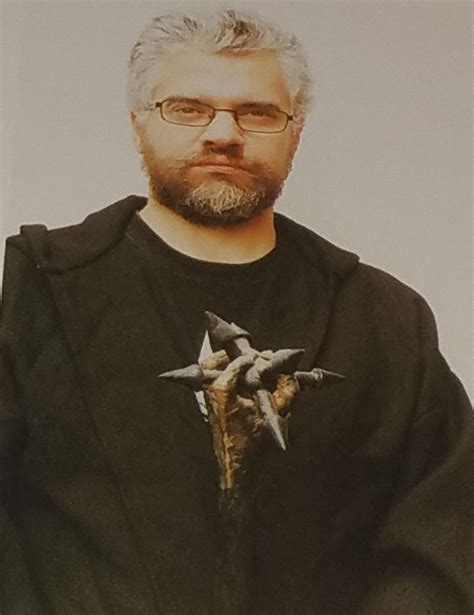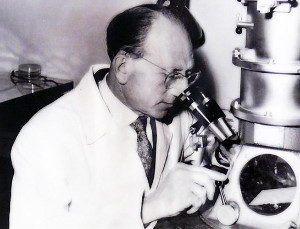A Quote by Claude Bernard
Men who believe too firmly in their theories, do not believe enough in the theories of others. So ... these despisers of their fellows ... make experiments only to destroy a theory, instead of to seek the truth.
Related Quotes
Managers are already voracious consumers of theory. Every time they make a decision or take action, it's based on some theory that leads them to believe that action will lead to the right result. The problem is, most managers aren't aware of the theories they're using, and they often use the wrong theories for the situation.
Henceforth, whilst there are a great many theories and models proposed as to how, or why, magic works (based on subtle energies, animal magnetism, psychological concepts, quantum theory, mathematics or the so-called anthropomorphic principle) it is not a case that one of them is more 'true' than others, but a case of which theory or model you choose to believe in, or which theory you find most attractive. Indeed, from a Chaos Magic perspective, you can selectively believe that a particular theory or model of magical action is true only for the duration of a particular ritual or phase of work.
One of the most difficult features of direct experience is that it is unfiltered by any theories or expectations. It's hard to observe without imposing a theory to explain what we're seeing, but the trouble with theories, as Einstein said, is that they explain not only what is observed, but what can be observed. We start to build expectations based on our theories.
Superstring theories provide a framework in which the force of gravity may be united with the other three forces in nature: the weak, electromagnetic and strong forces. Recent progress has shown that the most promising superstring theories follow from a single theory. For the last generation, physicists have studied five string theories and one close cousin. Recently it has become clear that these five or six theories are different limiting cases of one theory which, though still scarcely understood, is the candidate for superunification of the forces of nature.
I do not recall another period when ‘faith’ was as popular as it is today. ‘If only we believe hard enough we'll make it somehow.’ So goes the popular chant. What you believe is not important. Only believe... What is overlooked in all this is that faith is good only when it engages truth; when it is made to rest upon falsehood it can and often does lead to eternal tragedy. For it is not enough that we believe; we must believe the right thing about the right One.
Biochemists and biologists who adhere blindly to the Darwinism theory search for results that will be in agreement with their theories and consequently orient their research in a given direction, whether it be in the field of ecology, ethology, sociology, demography (dynamics of populations), genetics (so-called evolutionary genetics), or paleontology. This intrusion of theories has unfortunate results: it deprives observations and experiments of their objectivity, makes them biased, and, moreover, creates false problems.
There are varieties of theories of revolution. According to one of these theories, only one of these theories, revolutions occur when there is an explosion of rising expectation. And amongst the lower strata in Iranian society, we are witnessing an increasing rise of the expectation and it's clear that the regime is incapable of satisfying these demands.
Even mistaken hypotheses and theories are of use in leading to discoveries. This remark is true in all the sciences. The alchemists founded chemistry by pursuing chimerical problems and theories which are false. In physical science, which is more advanced than biology, we might still cite men of science who make great discoveries by relying on false theories.
Facts and theories are different things, not rungs in a hierarchy of increasing certainty. Facts are the world's data. Theories are structures of ideas that explain and interpret facts. Facts do not go away while scientists debate rival theories for explaining them. Einstein's theory of gravitation replaced Newton's, but apples did not suspend themselves in mid-air pending the outcome.



































